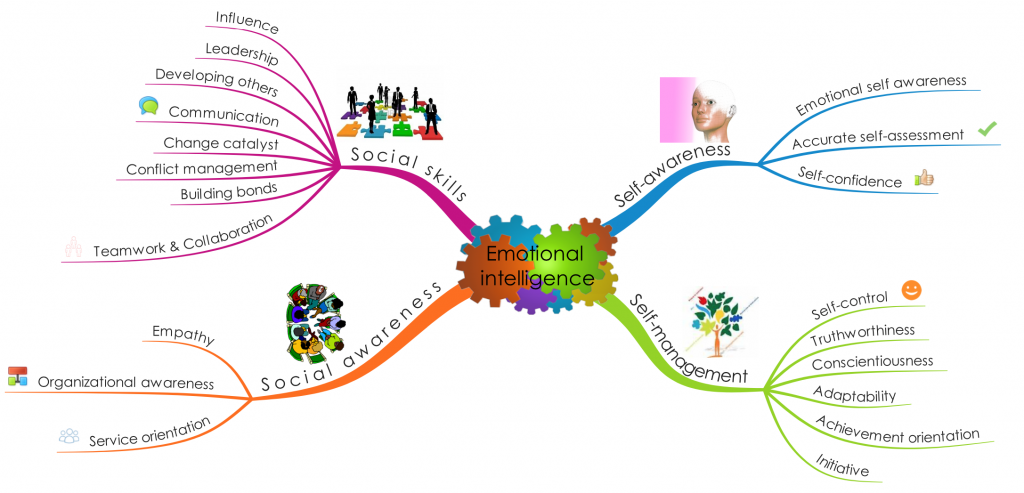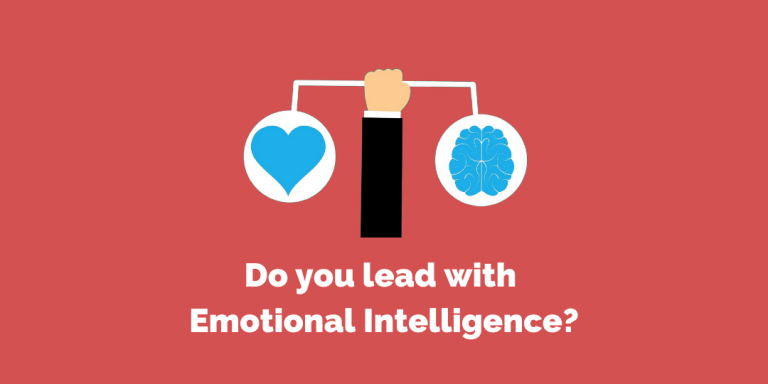With more and more of us becoming aware of the principles of Emotional Intelligence, it is more important than ever for leaders to challenge their own levels to develop this important interpersonal skill.
“No one cares how much you know, until they know how much you care.”
Employee’s want their managers to be mindful of their needs and are less accepting of insensitive behaviour and actions. With social awareness of Emotional Intelligence, or EQ, on the increase, leaders must recognise this, respond appropriately and develop this important interpersonal skill.
EQ was originally developed in the 1970’s and 80’s by encompassing two aspects of intelligence:
Understanding yourself, your goals, intentions, responses and behaviours.
Understanding others and their feelings.
However it wasn’t until the mid-1990’s that it became a significant behavioural model that focused on essential behavioural and character elements, and has progressed to become one of the most important interpersonal skills to develop. Daniel Goleman identified a range of ‘domains’ of Emotional Intelligence:

Knowing your emotions
The key here is self-awareness, which means you know how your emotions and actions impact you and others around you, and as a leader understand your strengths and weaknesses.
Take Time – when you feel a strong emotion, like anger for example, stop and examine why. Reflect on the situation and what actions triggered your feelings. Remember you are in control of your own actions no matter what the situation.
Managing your own emotions
Once we know our emotions the next step is to take control and manage them so they are appropriate. This means keeping calm, and implement strategies that help to control our anxiety or anger. Becoming masters of our own emotions encourages us to become more resilient and allows us to recover from setbacks and failures.
Take accountability – admit your mistakes, don’t try to blame others or make excuses. Take responsibility for your actions or behaviours; you’ll find others will respect you much more in the future.
Employ calming techniques – having a high EQ means that you are not reactive and that you control your feeling and thoughts before taking action. Therefore explore different techniques that can help you to do this:
Take a breath and count to 10.
Take a break – go for a walk or grab a drink.
Write down what you would like to say, then rip it up and throw it away.
Motivating yourself
Channelling emotions towards a goal or objective helps to keep focused. This mindset helps you stay motivated, encourages self-discipline and avoids distractions that can get in the way of you achieving your goals. Self-motivated leaders are able to keep positive and focused on where they want to get to, often demonstrating discipline and high standards of achievement.
Re-evaluate – remind yourself of your goals, your achievements, the important things in life for you and what makes you most passionate.
Be optimistic – whilst this may not come naturally, motivated leaders are usually very positive no matter what happens. Look for at least one positive, it may only be small but you will be surprised at how this keeps you focused.
Recognising and understanding other people's emotions
Leaders that employ empathy earn them the respect and loyalty of their teams, which is invaluable. Having the ability to put yourself in someone else’s situation is a must have if you want to manage a successful team or organisation.
Body Language – remember, not all communication is verbal so pay attention to what is not said just as much as you do on what is said.
Really Listen – most of us only retain 25% of what we hear. Eliminate barriers that stop you from listening and learn different techniques to enhance your listening skills.
Acknowledge feelings – don’t ignore other people’s feelings, acknowledge the situation and how they may be feeling, then see what you can do to rectify or improve things.
Managing relationships
This is a true test of leadership and interpersonal effectiveness and in simple terms refers to having great social skills. Those that are able to communicate effectively under any circumstances are often good at managing change and resolving conflict and will set examples with their own behaviour.
Communication skills – don’t think that these can’t be improved. There are lots of techniques and methods that can dramatically improve these skills and help you to become a master of communication.
Praise others – don’t be shy in recognising your team’s efforts and achievements. Be quick with praise and show your team how much they are appreciated.
Over the years it has been shown that leaders with a high EQ are more productive and successful at what they do. However, the good news is that your EQ is not a fixed trait; and whilst it can be challenging to acknowledge your weaknesses, it can be very enlightening to understand your strengths.








